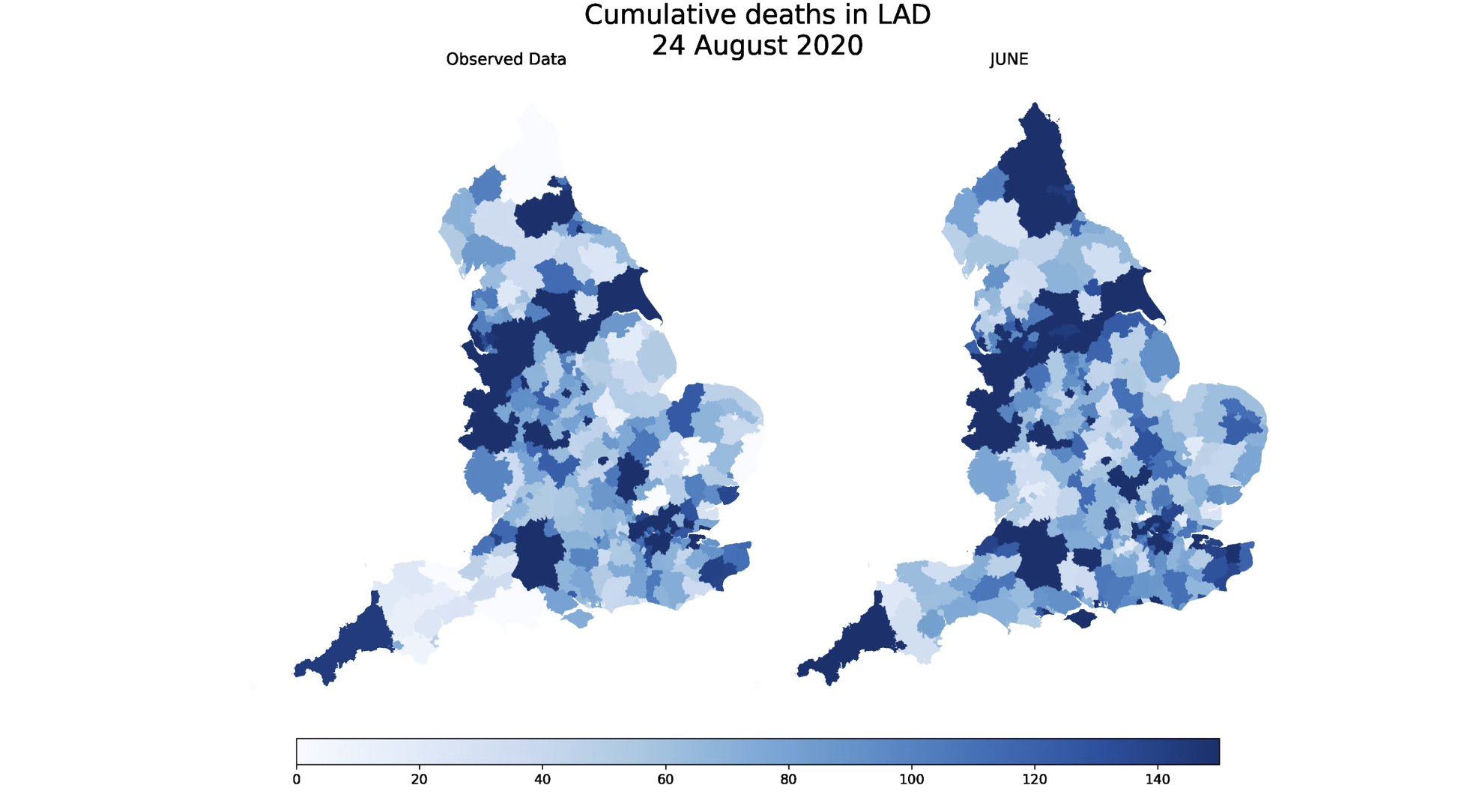IPPP develop new model that helps guide COVID-19 planning

Experts in the Institute for Particle Physics Phenomenology within the Department of Physics have developed a new model for simulating epidemics – and it’s already being used to inform the UK’s response to COVID-19.
Outputs from the model, known as JUNE, has been used to inform the NHS’s strategic management of the COVID-19 pandemic in England, in its response to the ongoing coronavirus situation.
What is the JUNE model?
JUNE is a new individual-based model that predicts how infectious diseases spread throughout a population living in a certain geographical location.
The model takes social interactions between individuals in the population into account to simulate the spread of diseases and reflects differences in age, sex, ethnicity and socio-economic indicators. JUNE provides a detailed outline of how a contagious disease may spread and affect contaminated people.
Simulating spread of COVID-19
JUNE uses census, household composition and workplace data of 53 million people to create a virtual population which resembles the population of England.
Data derived from surveys on the movement and daily routines of the individuals are then incorporated into the model to ensure that realistic movement patterns are reflected.
Various parameters in the model control the probability that a member of the virtual population is infected if they come into contact with an infected person.
To provide predictions of how quickly COVID-19 can spread, these parameters are adjusted based on data from the actual spread of COVID-19, according to NHS-England.
The JUNE team have adopted a multi-disciplinary approach, generating direct impact from their work and expertise in the response to the COVID-19 pandemic, by partnering with clinicians and computer scientists at the Department of Science Technology Engineering and Public Policy at University College London.
Royal Society awards
Our researchers are the leaders in their respective fields and they are recognised globally for their outstanding contribution in solving real-world problems.
Three of our PhD students involved in this project: Joseph Aylett-Bullock, Carolina Cuesta-Lazaro and Arnau Quera-Bofarull have been recognised for their significant contribution in the UK’s Rapid Assistance for Modelling the Pandemic (RAMP) and they have been awarded the RAMP Early Career Investigator Award.
This award symbolises the world-class research produced by our experts in Physics and further opens up the possibility of the JUNE model being applied internationally.
Find out more about IPPP
- Read the full paper in Royal Society Open Science.
- Learn more about the work of Prof Frank Krauss, Dr Ian Vernon, Prof Julian Williams and Prof Richard Bower.
- Learn more about our PhD students in this project: Joseph Aylett-Bullock, Carolina Cuesta-Lazaro, Arnau Quera-Bofarull, Aidan Sedgewick, Miguel Icaza-Lizaola, Aoife Curran and Edward Elliott.
- Learn more about our postgraduate student in this project: Henry Truong.
- Interested in studying at Durham? Explore our undergraduate and postgraduate courses in Department of Physics.
- Learn more about the work of Prof Kevin Fong and Dr Tristan Caulfield at the Department of Science, Technology, Engineering and Public Policy at UCL.


/prod01/prodbucket01/media/durham-university/departments-/physics/teaching-labs/VT2A9034-1998X733.jpeg)